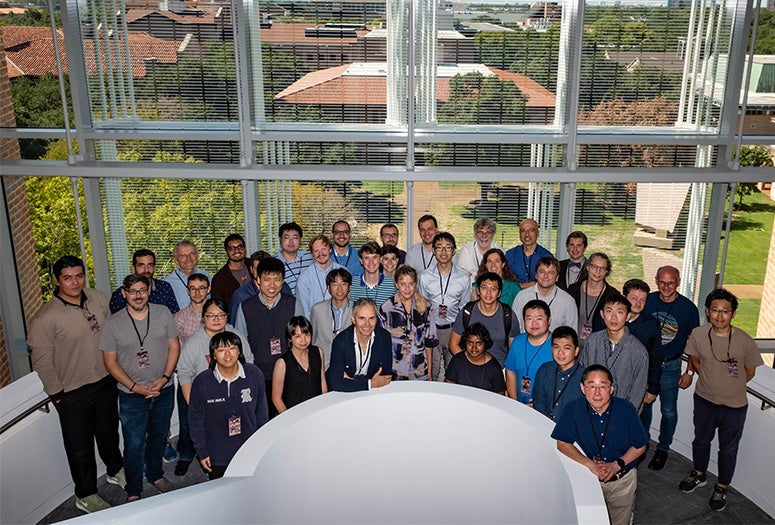Rice University hosted the first International Workshop on Quantum Vacuum in Matter Oct.11-13 at the Ralph S. O’Connor Building for Engineering and Science. The three-day event brought together leading experts in the field from around the world to discuss recent advances, discoveries and research priorities.
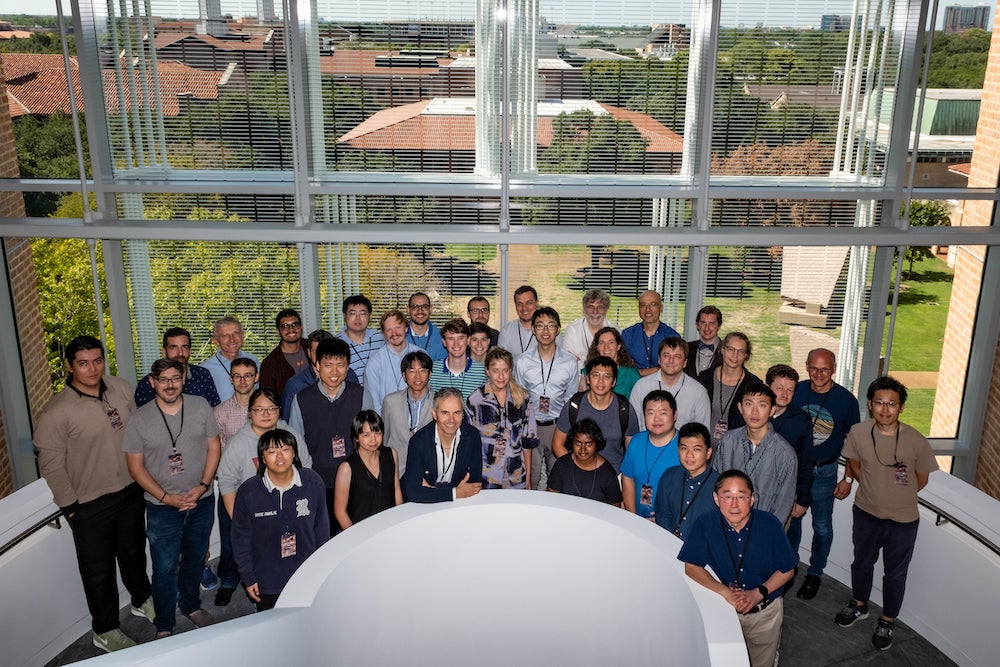
“Quantum vacuum is a fascinating topic,” said Hanyu Zhu, assistant professor of materials science and nanoengineering, William Marsh Rice Chair and chair of the workshop’s organizing and program committee. “In daily practice, vacuum is considered empty, but according to quantum theory and the uncertainty principle, vacuum, even at absolute zero temperature, is filled with transient fields of every possible force because of quantum fluctuations.”
Insights derived from the study of quantum vacuum could help scientists engineer electronic, magnetic and optical materials with new properties that could enable applications in a range of domains with some of the most exciting in information processing and sensing technologies.
Scientists’ ability to probe quantum vacuum effects has advanced significantly in recent years due to advancements in light-matter coupling regimes and cavity quantum electrodynamics. Scientists can now go beyond just probing the vacuum to controlling its properties.
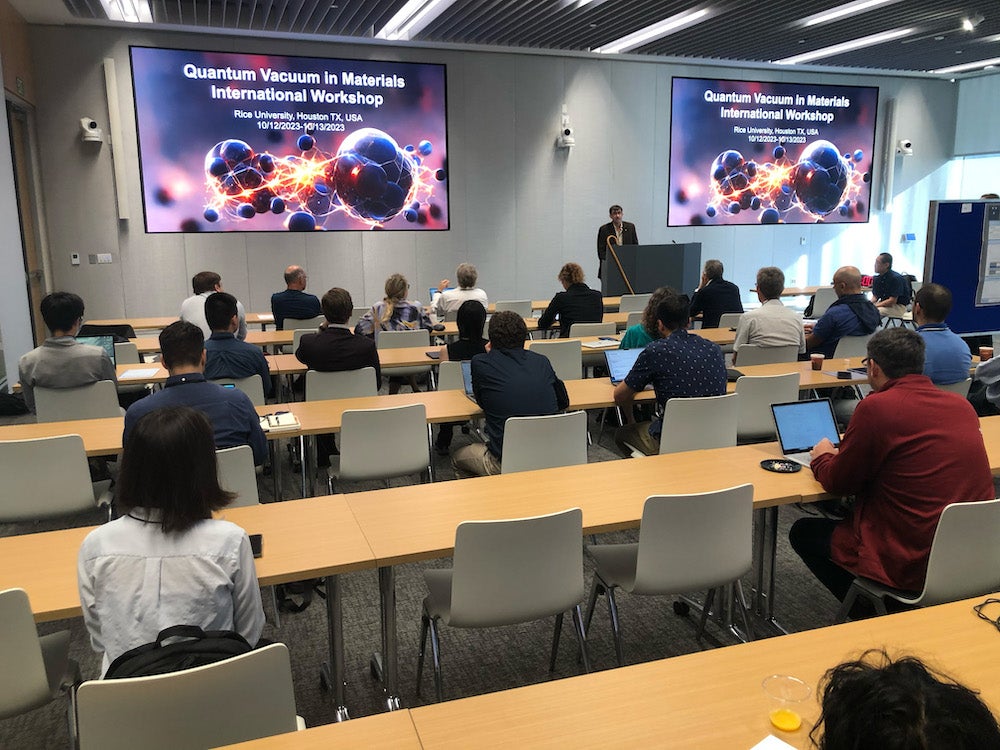
“It may sound crazy to get information out of nothing, but the vacuum effect can be felt via changes in energetically excited states of matter,” Zhu said.
“Ultrastrong coupling describes the interaction between two quantum fields, such as light and electronic excitations in matter,” said Junichiro Kono, Karl. F. Hasselmann Professor in Engineering. “Even the tiniest quantum fluctuation in one field can cause a change to occur in the other. These interactions are often boosted by an optical cavity, where light is bouncing multiple times between two mirrors.”
These quantum systems are typically studied in setups involving a small number of atoms, but research on larger samples containing billions of atoms is a very different challenge.
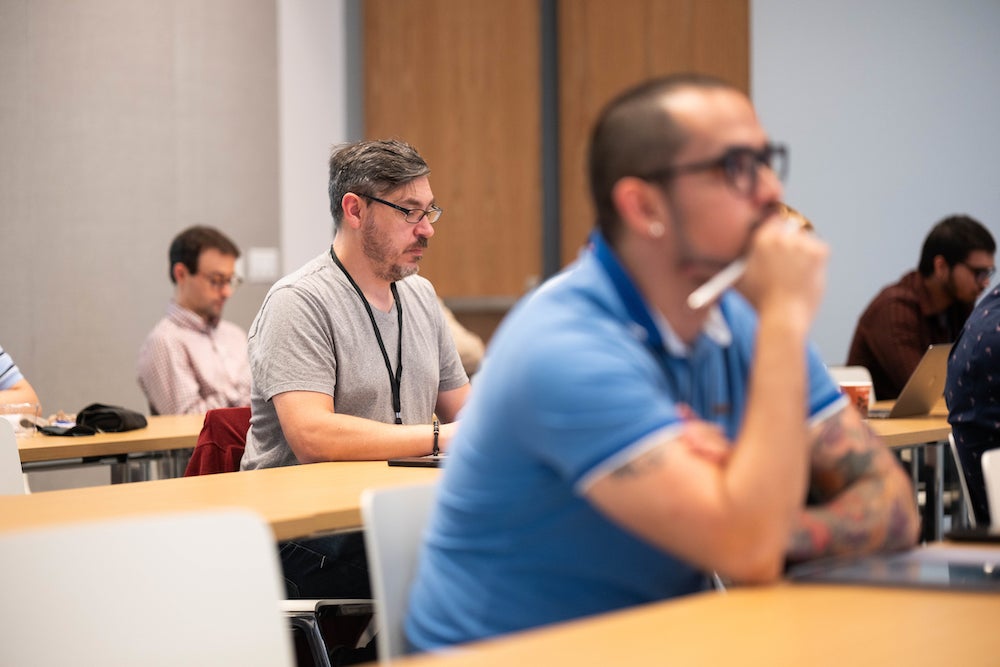
“That’s the direction we’re interested in pursuing because it may allow us to pry more deeply into the nature of quantum vacuum,” said Kono, who recently secured funding for research in the field.
The collective motion of atoms in larger material samples offers more room for vacuum manipulation, but at the same time, quantum effects are far more short-lived at this scale.
“Ideas are flowing, but very little is known,” Zhu said. “Based on our extensive experience in ultrastrong coupling, many-body quantum theory and optical spectroscopy, I hope Rice will emerge as a research hub for the study of quantum vacuum and that this event will help draw a talented and ambitious pool of students who are looking to contribute to cutting-edge quantum research.”
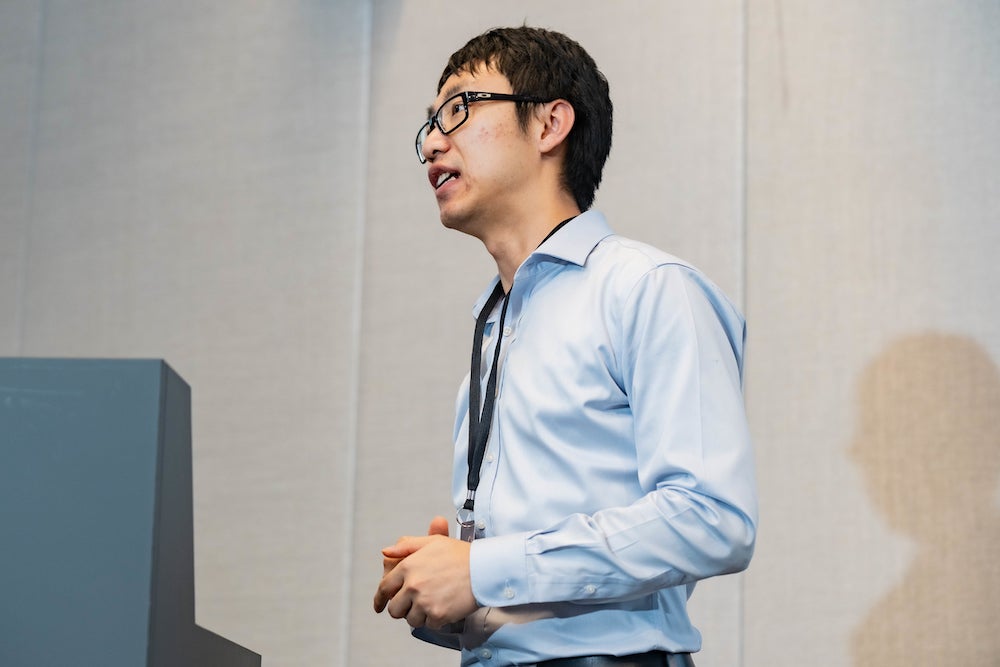
(Photo by Jeff Fitlow/Rice University)
Together with Kono, a professor of electrical and computer engineering, and Kaden Hazzard, an associate professor of physics and astronomy and co-chair of the Rice Quantum Initiative, Zhu coordinated an interdisciplinary research project dedicated to the study of quantum phenomena like entanglement states and ground-state quantum squeezing in matter.
“To observe quantum squeezing, we have to first understand how vacuum ground state works,” Zhu said.
Funded through a grant from the Keck Foundation and matching funds from the university, the project is overseen by an advisory board comprised of leading researchers in the field.
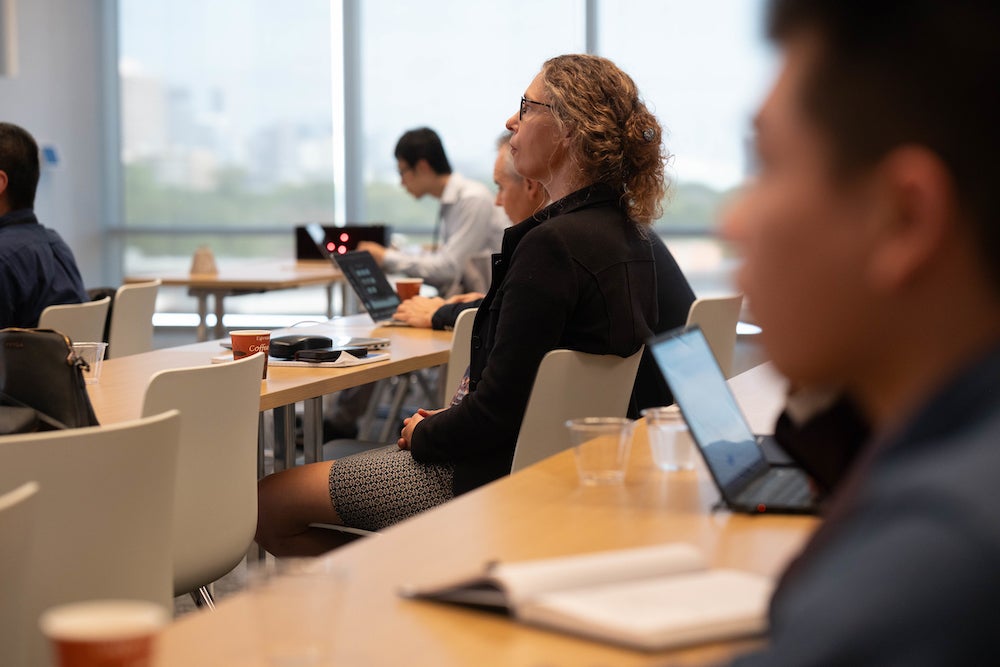
“The International Workshop on Quantum Vacuum in Matter nucleates from this advisory board,” Zhu said. “Part of what draws the researchers who attended the conference together is our interest in moving beyond studying these effects in only a few atoms to studying them in solids.”
Other workshop sponsors are the Gordon and Betty Moore Foundation, the Army Research Office, the Smalley-Curl Institute and Rice’s Office of Research.
More information about the workshop can be found here.
- Image Downloads:
-
https://news-network.rice.edu/news/files/2023/10/231010_HP_Fitlow_500.jpg
CAPTION: Participants in the first iteration of the International Workshop on Quantum Vacuum in Matter held at Rice University. (Photo by Jeff Fitlow/Rice University)
https://news-network.rice.edu/news/files/2023/10/QVM-Conference-4.jpg
CAPTION: Thomas Killian, Dean of Rice’s Wiess School of Natural Sciences, delivered opening remarks for the event. (Photo by Laura Livingston/Rice University)
https://news-network.rice.edu/news/files/2023/10/231010_HP_Fitlow_512.jpg
CAPTION: Rice’s Hanyu Zhu is chair of the workshop’s organizing and program committee.
(Photo by Jeff Fitlow/Rice University)
https://news-network.rice.edu/news/files/2023/10/231010_HP_Fitlow_542.jpg
(Photo by Jeff Fitlow/Rice University)https://news-network.rice.edu/news/files/2023/10/231010_HP_Fitlow_523.jpg
(Photo by Jeff Fitlow/Rice University) - Related stories:
-
Discovery may lead to terahertz technology for quantum sensing:
https://news.rice.edu/news/2023/discovery-may-lead-terahertz-technology-quantum-sensing
Keck, Rice back Zhu’s quantum project:
https://msne.rice.edu/news/keck-rice-back-zhus-quantum-projectRice’s Hanyu Zhu wins NSF CAREER Award:
https://msne.rice.edu/news/hanyu-zhu-receives-nsf-career-award
Rice wins Moore Foundation grant for quantum vacuum research:
https://news.rice.edu/news/2022/rice-wins-moore-foundation-grant-quantum-vacuum-research
- Links:
-
Quantum Vacuum in Matter International Workshop: https://qvm.rice.edu/
Zhu lab: https://zhugroup.rice.edu/
Kono lab: http://kono.rice.edu/
Hazzard group: http://kaden.rice.edu/group.htmlSmalley-Curl Institute: https://sci.rice.edu/
Rice Quantum Initiative: https://quantum.rice.edu/Rice Advanced Magnet with Broadband Optics (RAMBO): http://kono.rice.edu/rambo/
George R. Brown School of Engineering: https://engineering.rice.edu - About Rice:
-
Located on a 300-acre forested campus in Houston, Rice University is consistently ranked among the nation’s top 20 universities by U.S. News & World Report. Rice has highly respected schools of architecture, business, continuing studies, engineering, humanities, music, natural sciences and social sciences and is home to the Baker Institute for Public Policy. With 4,574 undergraduates and 3,982 graduate students, Rice’s undergraduate student-to-faculty ratio is just under 6-to-1. Its residential college system builds close-knit communities and lifelong friendships, just one reason why Rice is ranked No. 1 for lots of race/class interaction, No. 2 for best-run colleges and No. 12 for quality of life by the Princeton Review. Rice is also rated as a best value among private universities by Kiplinger’s Personal Finance.

